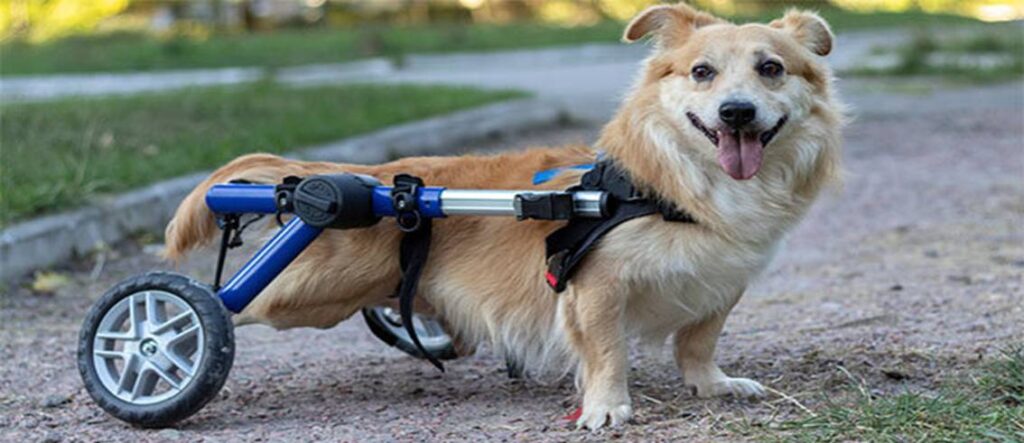Caring for Dogs with Special Conditions
Like humans, can develop or born with a wide range of medical, physical, or behavioural conditions. These conditions can impact their quality of life, but with the right care, understanding, and adjustments, many dogs with special needs can live happy, fulfilling lives. Whether you’re already caring for a dog with special conditions or considering adopting one, here’s what you need to know about their unique requirements and how to support them best.
1. Common Types of Special Conditions in Dogs
There are several categories of special conditions that can affect dogs:
Physical Disabilities: These include conditions like missing limbs (amputation), blindness, deafness, or neurological impairments that affect movement or coordination.
Chronic Medical Conditions: Dogs can suffer from long-term illnesses like diabetes, arthritis, heart disease, or kidney failure. Some breeds are also prone to specific hereditary conditions, such as hip dysplasia or respiratory issues.
Congenital Conditions: Some dogs are born with cleft palates, dwarfism, or skeletal deformities.
Mental and Behavioural Issues: Dogs may suffer from anxiety, aggression, or other behavioural disorders caused by genetics, past trauma, or improper training.
Allergies and Skin Conditions: Chronic allergies or skin sensitivities are common in many dogs and require special care.
2. Adapting to Physical Disabilities
Dogs are incredibly resilient and can often adapt to physical challenges. However, caring for a dog with physical disabilities requires some adjustments:
Blindness: Blind dogs rely heavily on their other senses, especially smell and hearing. Keeping the layout of your home consistent and providing tactile cues (such as textured rugs) can help them navigate their environment. It’s important to avoid sudden changes in their surroundings that could confuse or disorient them.
Deafness: Deaf dogs can be trained using visual or tactile signals, such as hand signals or vibrations. It’s essential to be mindful of safety, especially when outdoors, as they may not hear approaching dangers like cars or other animals.
Mobility Challenges: Dogs with missing limbs or neurological conditions that affect movement may require mobility aids like wheelchairs, harnesses, or ramps. Regular physical therapy and exercise are important to maintain muscle strength and prevent joint problems.
Many dogs with physical disabilities adjust quickly and can live normal, happy lives, often unaware that they are different.

3. Managing Chronic Medical Conditions
Chronic conditions like diabetes, arthritis, and heart disease require consistent and careful management:
Diabetes: Diabetic dogs need a strict diet and regular insulin injections. Monitoring their blood sugar levels is crucial to avoid complications like hypoglycaemia (low blood sugar). Routine vet visits and dietary control are key to managing the condition effectively.
Arthritis: Older dogs, especially larger breeds, are prone to arthritis. Pain management through medication, supplements (like glucosamine and fish oil), and low-impact exercise (such as swimming) can help alleviate discomfort and maintain mobility.
Heart Disease: Dogs with heart disease may require medication and lifestyle adjustments to reduce strain on the heart. Weight management and gentle exercise are essential components of care.
Managing chronic conditions requires a partnership with your veterinarian. Regular check-ups and blood work ensure that medications are effective and that the condition is under control.
4. Caring for Dogs with Behavioural Issues
Behavioural conditions in dogs can be challenging, but with the right training and care, many dogs can overcome or manage these issues:
Anxiety: Dogs with anxiety may require a calm and stable environment. Common triggers include separation, loud noises, or new environments. Behaviour modification, along with calming aids like pheromone diffusers, pressure wraps, or medication prescribed by a veterinarian, can help reduce anxiety.
Aggression: Aggression can stem
from fear, past trauma, or territorial instincts. Working with a professional dog trainer or behaviourist is essential to address the root causes of aggression. Training should focus on positive reinforcement to encourage good behaviour while managing triggers in a controlled, safe environment.
Obsessive-Compulsive Disorders (OCD): Dogs with OCD may exhibit repetitive behaviours such as tail chasing, excessive licking, or pacing. These behaviours can be distressing for both the dog and the owner. It’s important to redirect the dog’s attention through interactive toys, exercise, and mental stimulation. In some cases, medication or behavioural therapy might be necessary to help manage the condition.
5. Congenital Conditions and Genetic Disorders
Congenital conditions are present from birth and can range from mild to severe. These may include skeletal deformities, heart defects, or cleft palates. Some of the more common congenital conditions include:
Hip Dysplasia: A genetic condition most often seen in large-breed dogs, hip dysplasia involves the abnormal development of the hip joint, leading to pain and arthritis. This condition is typically managed through weight control, joint supplements, and in severe cases, surgery.
Cleft Palate: Puppies born with cleft palates require special feeding techniques to prevent food from entering the nasal passages. In many cases, corrective surgery can be performed to repair the palate and improve the dog’s quality of life.
Dwarfism: Some dogs, like the Dachshund or Corgi, are intentionally bred for shorter limbs. However, in some cases, dogs are born with skeletal dwarfism, which can lead to joint and mobility issues. Care often includes managing weight and ensuring that the dog doesn’t put undue stress on its joints.
Understanding the specific needs of dogs with congenital conditions is crucial for providing the right care. Regular veterinary care and monitoring for any signs of discomfort or progression of symptoms are necessary.
6. Diet and Nutrition for Dogs with Special Conditions
Dogs with special needs may also require a tailored diet to manage their condition effectively. For example:
Diabetic Dogs: A high-fibre, low-fat diet can help regulate blood sugar levels in diabetic dogs.
Allergies: Dogs with food allergies may benefit from a hypoallergenic or limited-ingredient diet to minimize reactions. Identifying allergens through testing or an elimination diet is crucial to avoid flare-ups.
Joint and Mobility Issues: Dogs with arthritis or joint problems can benefit from diets enriched with omega-3 fatty acids, glucosamine, and chondroitin to support joint health. Weight management is also key to reducing stress on the joints.
Working closely with a veterinarian or a veterinary nutritionist can help ensure that your dog is getting the right nutrients for its specific condition.
7. Emotional Support and Patience
Caring for a dog with special conditions requires an extra level of patience, understanding, and emotional support. These dogs may need more time to adapt, especially if their condition is new or progressive. Providing a stable, loving environment is essential to their well-being.
Consistency: Sticking to routines can help dogs with disabilities or behavioural issues feel more secure. Feeding times, walks, and sleep schedules should be consistent to reduce anxiety or confusion.
Mental Stimulation: Dogs with special conditions often benefit from mental enrichment. Puzzle toys, training exercises, and interactive games can help keep their minds sharp and engaged, particularly if their physical activity is limited.
Socialization: Special-needs dogs may require different approaches to socialization, depending on their condition. For example, a deaf dog may need to be introduced to other dogs or people using visual cues, while a dog with anxiety might need slower, more controlled introductions to new environments or animals.

8. Vet Visits and Health Monitoring
Regular veterinary check-ups are crucial for dogs with special conditions, especially if they are on long-term medication or have chronic illnesses. Your vet will monitor their condition, adjust treatment plans as needed, and ensure that the dog’s quality of life is maintained.
Additionally, you’ll need to monitor your dog at home for any changes in behaviour, appetite, or energy levels. These can be early signs that something is wrong and may require veterinary attention.
9. Adopting a Special-Needs Dog
Adopting a dog with special conditions can be incredibly rewarding, but it’s important to be prepared for the extra responsibilities that come with it. Here are a few things to consider:
Time and Commitment: Special-needs dogs often require more time for care, whether it’s administering medication, assisting with mobility, or managing a chronic condition. Be honest about your ability to provide this level of care.
Financial Considerations: Veterinary bills, medications, special diets, and equipment like wheelchairs or ramps can add up. It’s important to consider the financial impact of caring for a dog with special needs.
Support Systems: Having a support system in place, whether it’s friends, family, or a network of pet care professionals, can be helpful when caring for a special-needs dog. Access to a good veterinarian, behaviourist, or trainer is also essential.
Conclusion
Dogs with special conditions require a little extra care, but they are just as capable of providing love and companionship as any other dog. With patience, proper medical care, and a loving environment, these dogs can lead happy, fulfilling lives. Whether you are currently caring for a special-needs dog or considering adopting one, understanding their unique needs and preparing for the responsibilities can make all the difference in ensuring their well-being.


